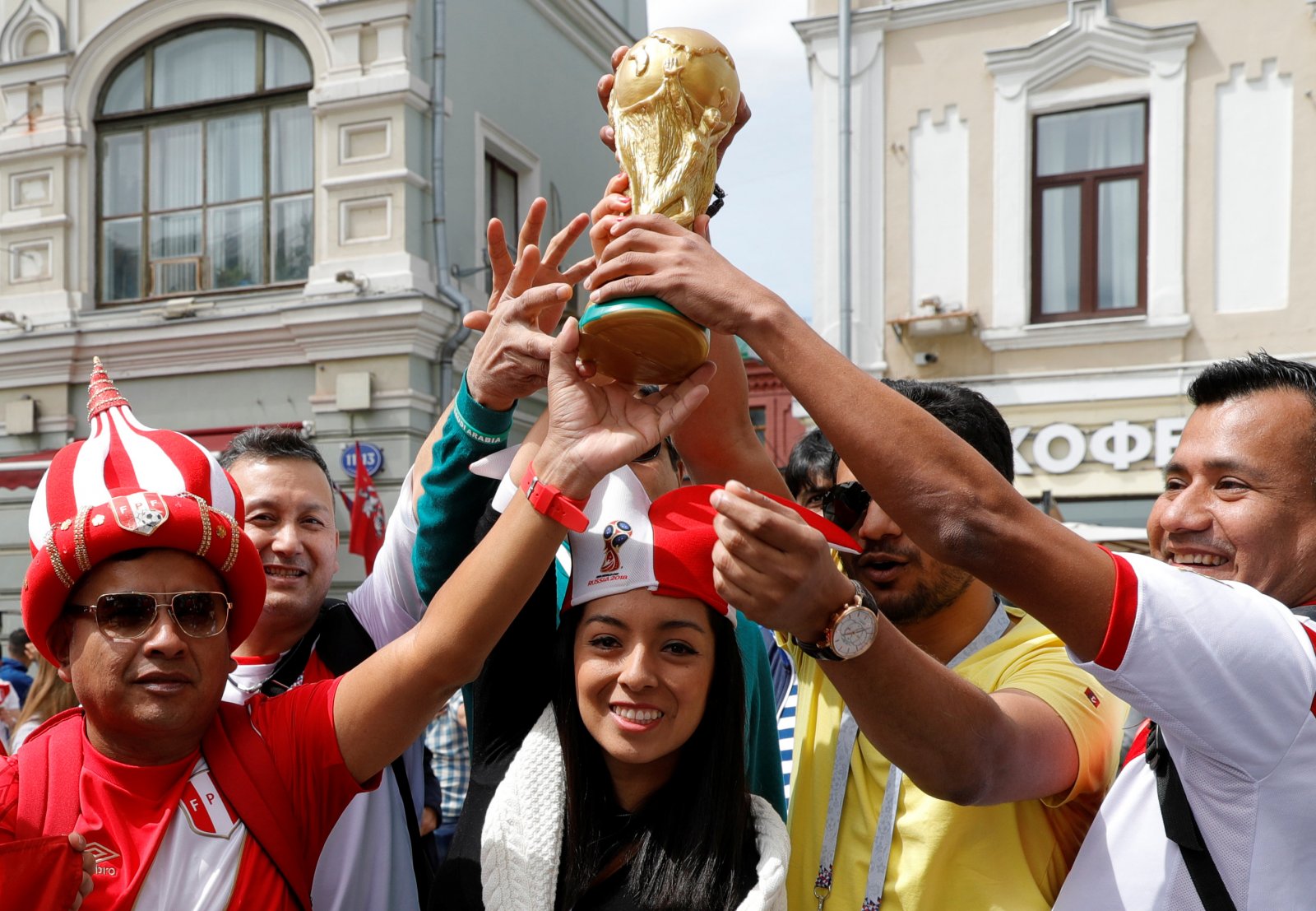FIFA’s fan-led reporters shows why this World Cup is different to the others
You can’t get away from this World Cup. It’s everywhere and will be for the next few months.
That’s always the case. Across all media there’s always been a buzz around the festival of football that takes place once every four years as homes, schools and workplaces come to a complete stop, especially when the home nation takes to the field.
This year won’t be any different to that but in a way, it will. Because this time it’s a truly 24-hour event. There have always been pundits on TV coverage, highlights shows and magazine offerings. There have always been newspapers with their comment sections and their analyses. There have always been passionate fans willing to talk about the action everywhere from the dinner table to the watercooler to the pub toilets (World Cup fever and all that…).
But this time, we’re going to get all of that brought together by the internet.
Yes, you might argue that we had that last time. There’s nothing more boring than proclaiming this the ‘first truly digital World Cup’, or banging on about why ‘this time, social media will rule the roost’. We did that four years ago and we’ll likely do that in some form four years from now. But there is definitely something different about this one.
That’s always the case, too, but there’s a reason for that.
Four years is not a long time in the grand scheme of things, so people don’t feel like a lot has changed in their everyday lives. But it is long enough for technology to change our lives in small enough ways that when we look back we see it. World Cups and Olympic Games do that to us, and we realise what we didn’t have before. One day your hair is short, the next you need a haircut. Sometimes the change sneaks up on you.
In the last four years, Twitter’s ability to serve native video has transformed the platform in a subtle way, yet it’s very noticeable if you look back. In that time, podcasts and video series have exploded into football fans’ everyday media consumption habits – there are enough football podcasts out there now to fill every moment of freedom you have not thinking about the games.
And then there’s the rise of fan-led media, which was out in force in 2014 but seems to have taken an extra edge in the last few years – it’s been professionalised and even placed in the mainstream in many cases.
Take FIFA’s latest initiative: selecting fans from all of the teams participating in the tournament and collating them together into one scheme:
The energy is rising. Football fans across the globe are ready to bring every inch of passion to the #WorldCup.
One group of fans in particular is making noise already. Introducing Fan Movement by FIFA.
Stay tuned for real fan stories. #WeLiveFootball pic.twitter.com/CM9oC4Fpoy
— FIFA World Cup ???? (@FIFAWorldCup) June 14, 2018
Recently, we’ve seen the likes of BT Sport engage with ‘fan reporters’ to bring supporter opinion from the club game to their regular Saturday afternoon programming. The opinions of pundits are often derided by those who support specific clubs, mostly whenever the talking head in question doesn’t seem to appreciate the nuances of their team, or doesn’t appear to have done the requisite homework.
BT have countered this by asking fan some bloggers to create a short video diary of their matchday, producing a few seconds of video before, during and after the game, and even adding to the analysis afterwards on their successful Football Tonight programme.
Fans – with their deep knowledge and understanding of the club – bring a unique viewpoint on the topic at hand. And as a result, that opens up broadcasting and analysis to thousands more people than it ever did before. No longer do you have to be a presenter, a journalist or an ex-pro to voice your opinion. And that leads to an explosion of content across every platform you can think of.
It’s the same with a World Cup, but in a different way: because so many of the countries involved are simply happy to be there and want to play with pride for their country, their shirt and their flag, every country has a different way of experiencing the tournament. Iran might be happy with a good showing but ultimately going out in the group stages. That wouldn’t cut the mustard for England.
We asked @marceldesailly to help us. Our Fan Movement members explain why people should support THEIR country. If you are a neutral in this #WorldCup, which team will you support? #WeLiveFootball pic.twitter.com/RouyDz2vd8
— FIFA World Cup ???? (@FIFAWorldCup) June 14, 2018
Interestingly, too, the first installment of FIFA’s video series frames the tournament around the fans of those teams who haven’t made it to the World Cup. This is a global party after all.
It’s a global party which is able to appeal to fans all over the planet much more easily than ever before thanks to the way our world now works, with everyone connected to the same meeting place via the internet and social media. And that’s why this will be impossible to miss.
This World Cup will be everywhere because fans can now choose to consume it anywhere.
About author
You might also like
Leeds United become first football club to sell official jerseys on TikTok
Leeds United is the first football club in the world to partner with TikTok to sell official merchandise and replica jerseys. Coinciding with the release of the new rhapsody purple,
Lewes FC Appoints Sue Anstiss To Its Board Of Directors
The Lewes FC Board is delighted to announce that it has co-opted Sue Anstiss as a Lewes FC Director. Sue has been a driving force for equality in sport for
Trustly extends partnership to become West Ham United Women’s Sleeve Partner
West Ham United is pleased to announce that Trustly has enhanced its relationship with the Club by becoming the Women’s Sleeve Partner. Trustly, the leading global account-to-account payments platform, became








